FORT RILEY, Kan., April 29, 2011 -- Two years after receiving a traumatic brain injury in Iraq, and just days before heading into harm's way again, a change in policy allowed Lt. Col. Erich Campbell to receive the Purple Heart on Fort Riley, April 27, 2011.
Campbell, who is scheduled to deploy to Afghanistan Friday, received the medal for injuries sustained when a suicide bomber disguised as an Iraqi police officer attacked his unit in 2008. The explosion killed six Iraqi police officers, including an Iraqi general, he said.
Campbell is one of the first servicemembers to receive a Purple Heart for traumatic brain injury, or TBI, due to a recent change in the military's recognition of the injuries.
"At the time of the injury, I was taken to the CSH (combat support hospital), given Motrin and told, 'Well you just got your bell rung, take three days off, get some rest and you should be good.' It wasn't very long after that that I realized there was something wrong."
Previously if service members were not diagnosed with TBI immediately after an incident, it could complicate the process of presenting them the Purple Heart, he explained.
"What the Purple Heart does for me today is it quantifies that there really was something wrong with us," said Campbell.
Fort Riley and 1st Infantry Division Commander Maj. Gen. Vincent Brooks presented the medal to Campbell in front of an audience gathered at Fort Riley's TBI Clinic for the ceremony.
"This is a recognition that no one wants, no one seeks," said Brooks. "Unlike other decorations, it's not an award you earn. It's an entitlement. It's a way our nation says, 'You have exposed yourself and have borne the brunt of the battle.'"
Brooks also addressed the change that allowed Campbell to receive the Purple Heart.
"While blasts and traumatic brain injuries are not something new to warriors, not new at all, our recognition of it as an injury is very different. It's about time, quite frankly. It's about time," he said.
Campbell gave a speech to his audience after the ceremony, most of which he dedicated to thanking his friends in the community and the Army.
"I really know what we're fighting for. It's for you guys," said Campbell, pointing around the room, "and for our home."
"Someone once wrote a book, It Takes a Village to Raise a Child. I'm here to tell you it takes a nation to heal a warrior. Not just the military," he said.
Campbell has spent the last year serving as the rear detachment commander for Fort Riley's Combat Aviation Brigade, 1st Infantry Division. With that unit recently returned from Iraq, Campbell is scheduled to deploy to Afghanistan with the 3rd Brigade, 1st Armored Division.
"(It) proves that you can suffer from a traumatic brain injury, get treated, not affect your career, and go on to serve the military," said Campbell.
Campbell said after his tour he plans to retire to his home in Holton, Kan., with his neighbors, his family and his Bassett hounds.
Related Links:
Military progresses in identifying, treating brain, mental injuries
Traumatic Brain Injuries: What servicemembers need to know
STAND-TO!: National Brain Injury Awareness Month
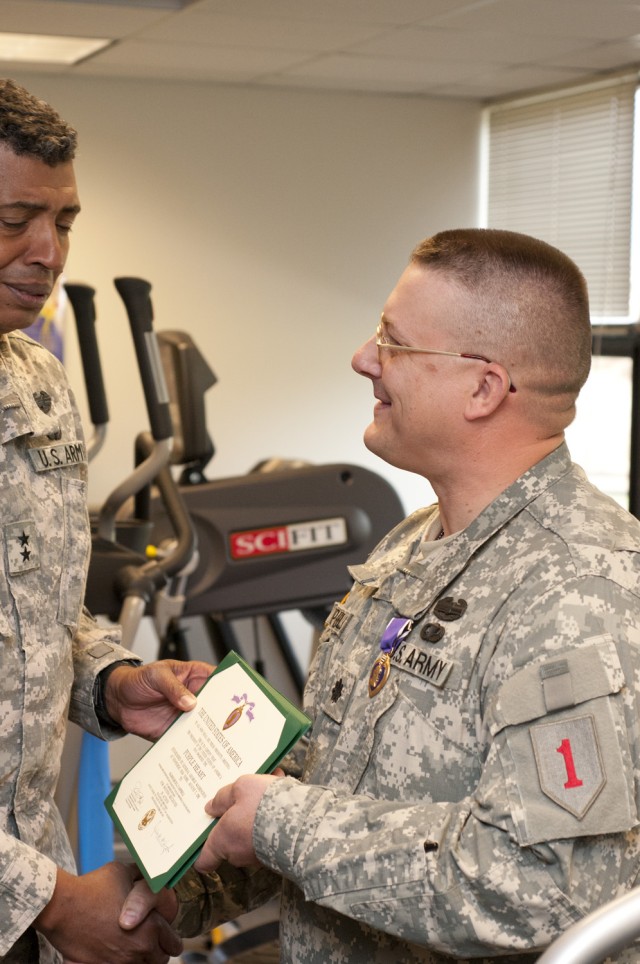
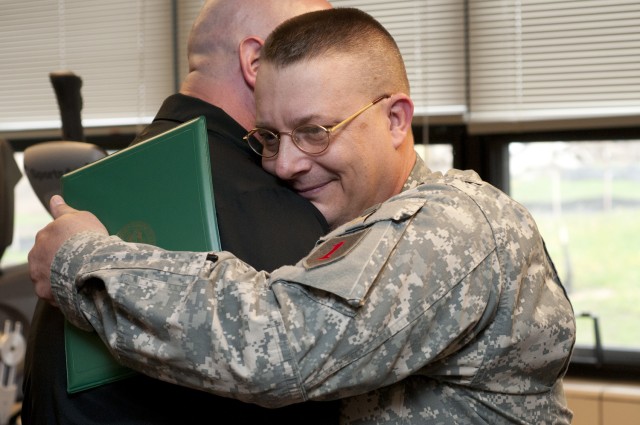
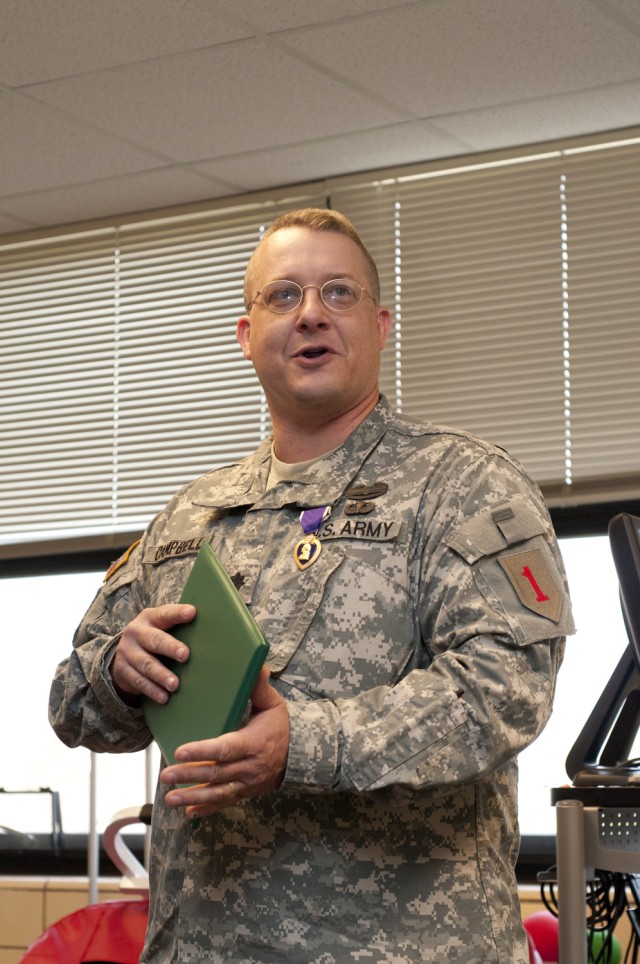
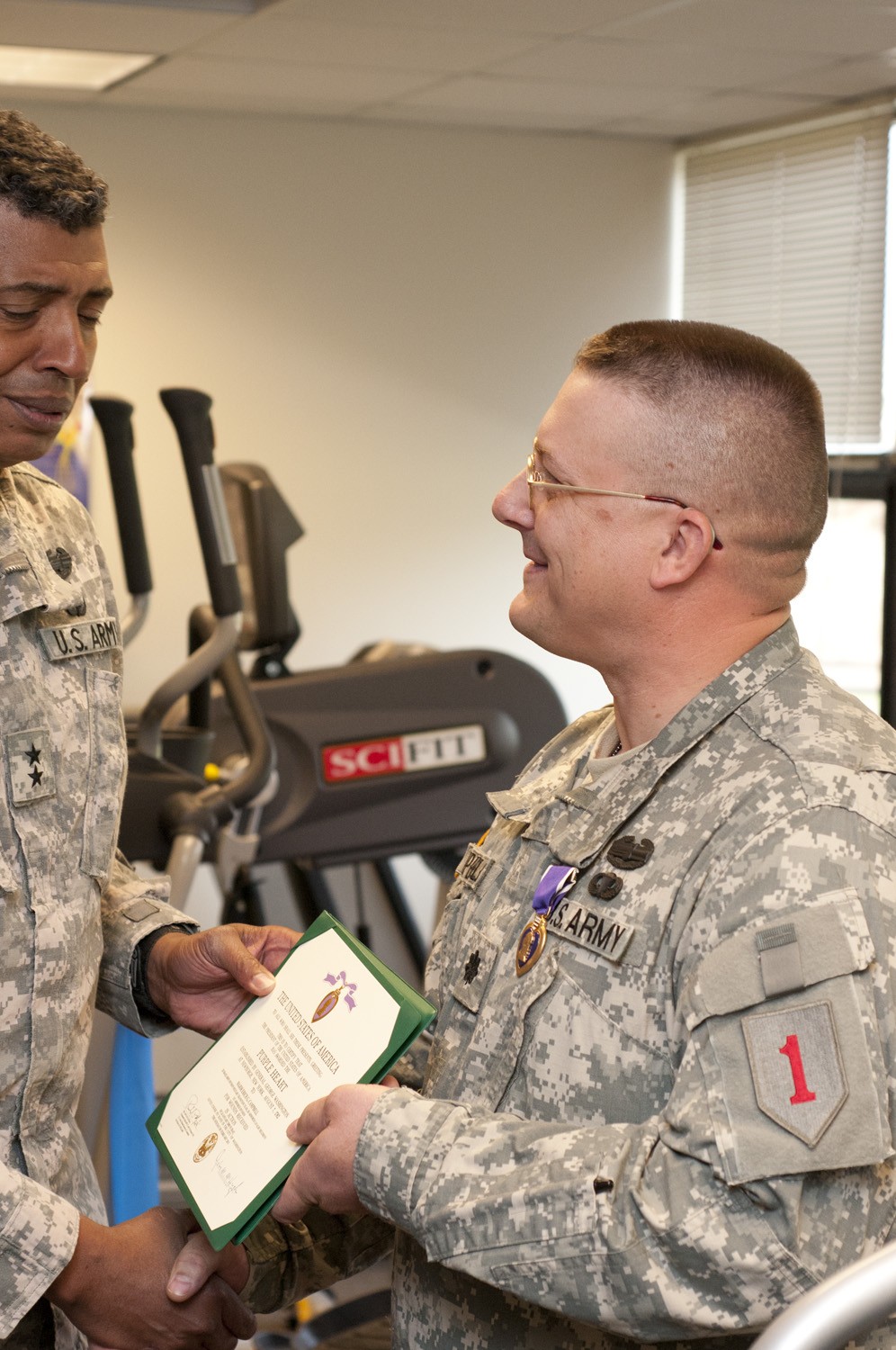

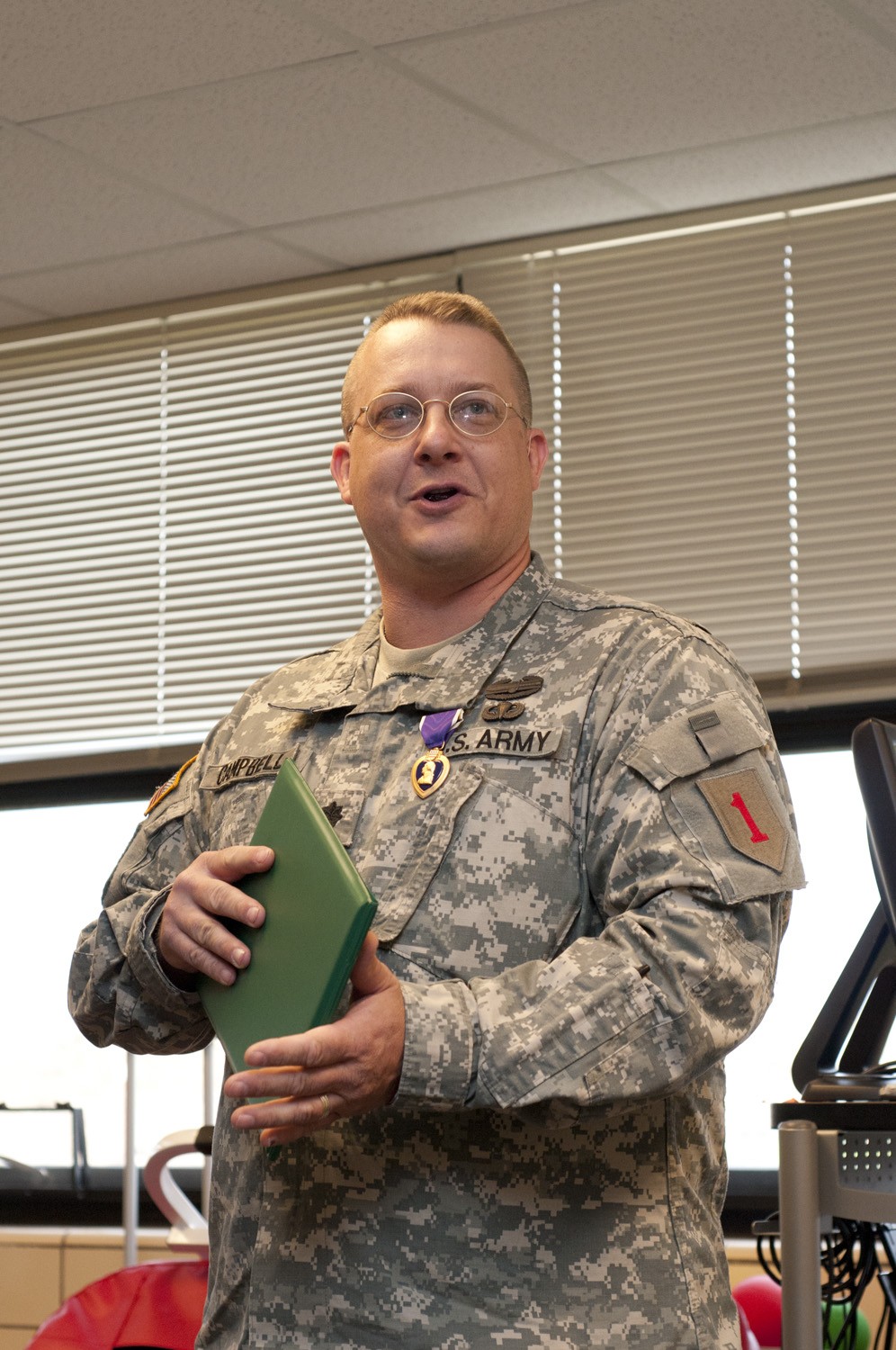
Social Sharing